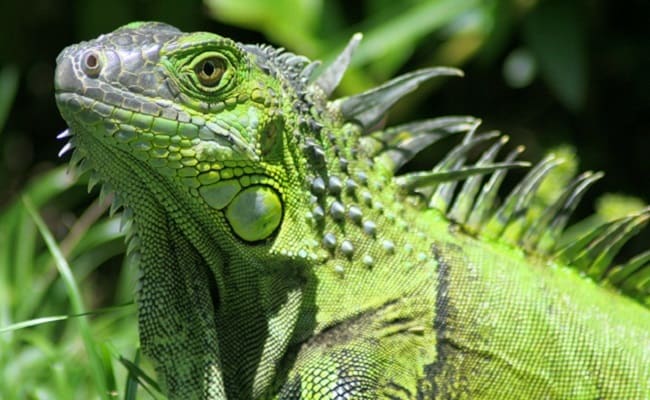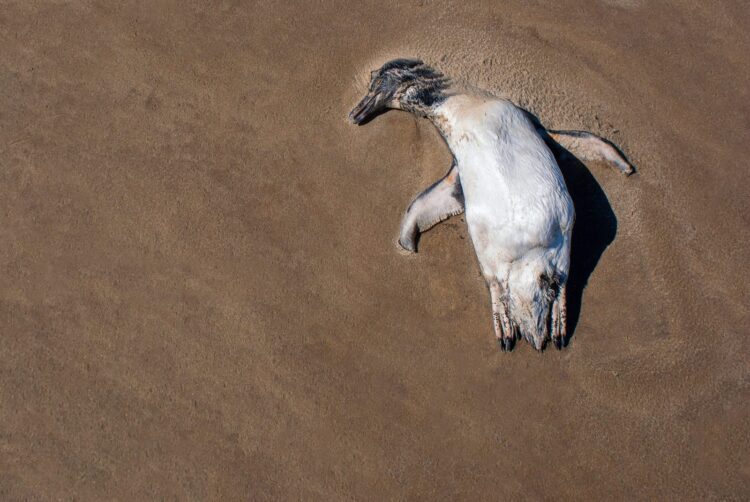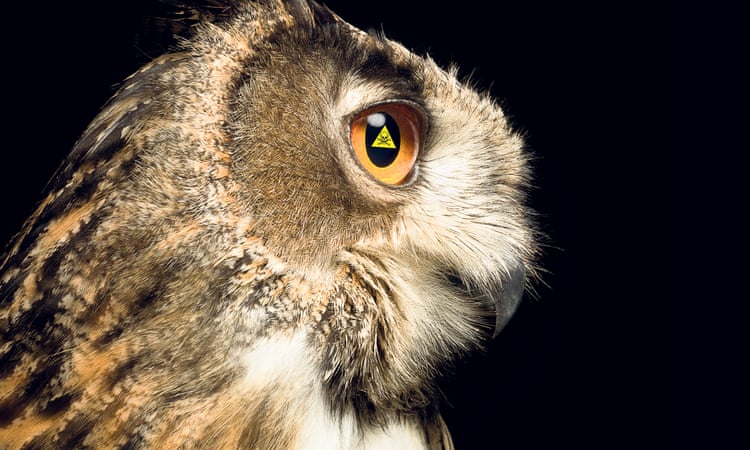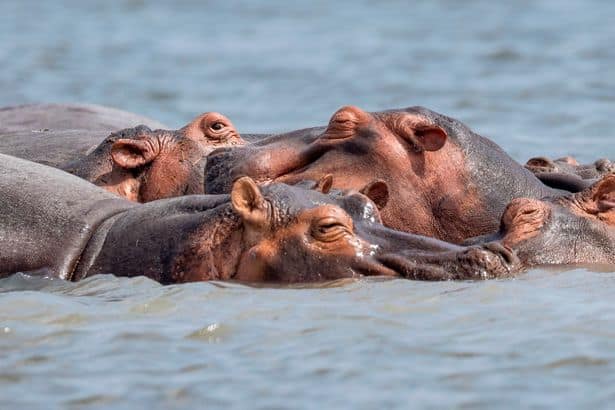During Winter Storm Grayson, aka the “Bomb Cyclone,” temperatures on the East Coast dropped below those on Mars.
While 21 people had died as of Jan. 6, the storm also affected animals that aren’t used to such cold weather, including iguanas in Florida, sea turtles along the Gulf Coast and even penguins in a zoo.

Icy Iguanas Fall From Florida Trees
Perhaps the strangest impact of the Bomb Cyclone was on green iguanas in the Sunshine State. As temperatures dipped into the 30s, people began seeing frozen iguanas on the ground.
The cold-blooded reptiles become immobile in temperatures colder than 40 degrees, Kristen Sommers of the Florida Fish and Wildlife Conservation Commission told the Washington Post.
Some Floridians moved the iguanas they found to sunny spots to help them thaw out. During a similar cold snap in Florida in 2010, a man from Central America, where iguanas are considered a delicacy, put several of the frozen animals in his station wagon, intending to eat them for dinner. But thanks to the heater running in his car, the iguanas soon gained consciousness and began crawling around, causing the man to have a wreck.
Because of global warming, could frozen iguanas become a not-so-unusual sighting in Florida? If you happen to see one, leave it alone, the Florida Fish and Wildlife Conservation Commission advises. It could become frightened should it gain consciousness while you’re moving it. “Like any wild animal, it will try to defend itself,” Sommers said. It could bite, scratch or whip you with its tail, causing serious injury.
Stunned Sea Turtles
The freezing temperatures also affected sea turtles along the Gulf Coast in Texas, including threatened green turtles. Rescuers have been busy saving turtles suffering from hypothermia, which stuns them and causes them to float to the surface of the water – a very dangerous place, since they become easy prey and can also get hit by passing boats.
Emergency crews with the National Park Service (NPS) had rescued 41 sea turtles as of Jan. 2.
“We have been on the lookout for cold-stunned turtles since early December,” Dr. Donna Shaver, chief of the NPS Division of Sea Turtle Science and Recovery, told the Corpus Christi Caller-Times. “We are continuing to search and rescue these animals so that they may be immediately rehabilitated.”
After they recover, the sea turtles are released in the warmer waters of the Gulf Stream. “There is a good chance that they will survive,” Shaver said.
Zoo Penguins Brought Indoors
To protect king penguins – which normally thrive in freezing subantarctic weather – at the Calgary Zoo in Alberta, they were brought indoors when temperatures plunged to -16 degrees Fahrenheit, with a wind chill making it feel more like -40 degrees.
“It’s kind of like you can bundle up your kid, but then there’s a point you’re going to say, ‘I know you’re good, but I’d rather you stay inside now,’” zoo curator Malu Celli told the Canadian Press.
King penguins typically live in warmer climates than emperor penguins, which live in the Antarctic. The Calgary Zoo relocates them to their indoor enclosure when the outdoor temperature drops below -13 degrees Farenheit.
“It’s not necessarily that it’s too cold for them,” Celli said. “I believe that physiologically, they can withstand colder weather than what we have here, but these are not wild birds.”
At other zoos that are feeling the impact of the Bomb Cyclone, precautions are being taken to protect animals from freezing. These include “hot tubs” for flamingos and lots of extra blankets for other animals, according toBryan Amaral, senior curator of animal care sciences at Smithsonian’s National Zoo. Animal caretakers are spending the night to ensure someone’s there in case the roads surrounding zoos become impassable to traffic.
This article was first published by Care2.com on 08 Jan 2018.






Leave a Reply